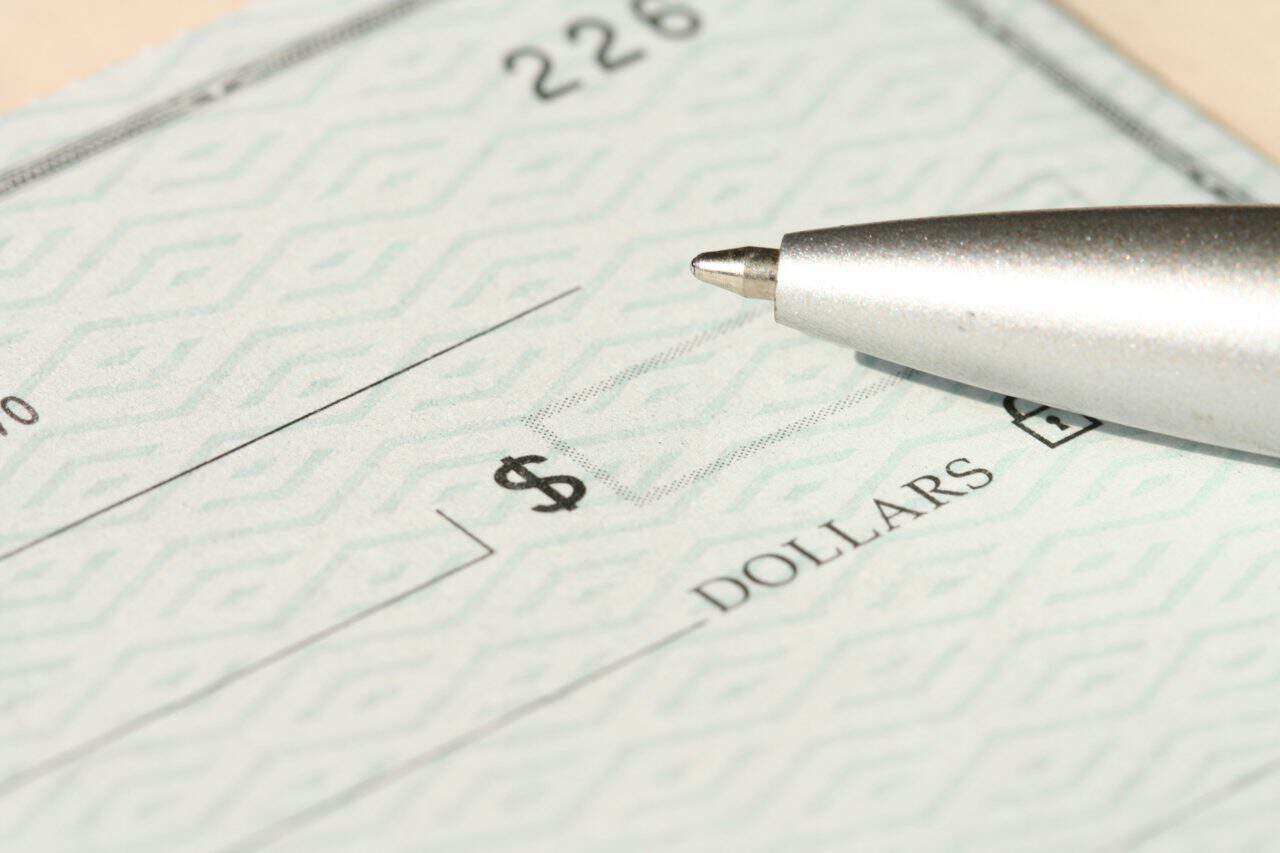Most felons are eligible for government programs, but it depends on several factors.
The length of incarceration, the nature and severity of the crime, and the current incarceration status all play a part.
However, the most crucial eligibility revolves around the general requirements for the program.
Contents
What are Government Benefits?
Government Benefits are any form of assistance or support the government provides.
Most of these programs focus on low-income people or households with children.
Many help former felons.
These services are wide-ranging, but here is a limited list.
Temporary Assistance for Needy Families (TANF) – TANF (commonly called “welfare”) focuses on low-income households with children.
It provides monthly cash payments and resources for parents.
These resources help parents find better jobs, develop better skills, and find (and be) better partners to help raise their children.
Supplemental Nutrition Assistance Program (SNAP) – SNAP, often referred to as “food stamps,” helps low-income families afford nutritious food.
SNAP particularly helps low-income families with children.
Medicaid and Children’s Health Insurance Program (CHIP) – Medicaid and CHIP act as extra help with health insurance and medical bills for low-income households.
Housing and Urban Development (HUD) Assistance – HUD provides assistance and relief in renting an apartment or buying a home for low-income individuals who would otherwise be at risk for homelessness.
Social Security or Supplemental Security Income (SSI) – Social Security and SSI are monthly payments to anyone who cannot earn a certain level of income due to a disability (or someone over the age of 65).
These payments are to aid in paying for basic needs.
Who Is Eligible for Government Benefits?
Requirements vary by state, but generally, you only need to be a U.S. citizen with a clear financial need to be eligible for government benefits.
Some programs and benefits also require you to be employed, seeking employment, or to have children to be eligible.
All government benefits listed above are available to not incarcerated felons in most of the U.S., and the list doesn’t stop there.
There are also programs for helping someone afford a cellphone or provide relief with certain utilities.
With these barriers removed, they have a chance to work toward something better.
Who Is Ineligible for Government Benefits?
Felons that are currently incarcerated have fewer options for themselves and their dependents.
Eligibility may change depending on the charge, its severity, and the length of time held.
Also, prisoners are not eligible for Social Security or SSI in most cases, which disqualifies them for disability and medicare.
Programs like SNAP or HUD don’t apply to someone currently in jail or prison.
They are not eligible for these programs, even if they are applying on behalf of dependents.
How Incarceration Affects Eligibility for Government Benefits
Prisoners and released felons have different eligibility for government programs.
Generally, an incarcerated felon is not eligible for government benefits.
Are Prisoners Entitled to Pension?
Prisoners are not entitled to pension or social security retirement until released.
Also, you cannot transfer or redeem benefits on someone else’s behalf due to incarceration.
Disability Compensation
Disability Compensation (short-term or long-term) is not available to an incarcerated felon.
However, once that person is released from prison, they may be able to resume their disability payments.
It will depend on the sentence and severity of the felony, but most felons can resume payments after being released.
Apportionment to Spouse or Children
Unfortunately, prisoners cannot apply for benefits even for dependents.
Benefits are usually suspended for the time that person is serving out their sentence if they are already receiving them.
Suppose you or your child(ren) are dependent on an incarcerated felon for government assistance.
In that case, it may be a good idea to apply for that assistance yourself for you or your child(ren).
Your benefits as a dependent can be suspended, as well, once that prisoner reaches 30 days in a row.
Education Benefits
Getting benefits from the Federal Student Aid office while incarcerated is difficult.
Eligibility depends on the nature of the charge and in what kind of institution the felon is being held.
If held in a federal or state institution, you are not eligible for the Federal Pell Grant or any federal student loans.
You may still qualify for a Federal Supplemental Educational Opportunity Grant or Federal Work-Study.
Other students may receive priority for these grants first.
Federal Work-Study in particular is hard to get as a felon.
It requires you to work specific jobs paid by that grant, often in person on campus.
If you are being held in an institution other than a federal or state institution, you cannot apply for federal student loans.
Still, you may be able to get a Federal Pell Grant, Work-Study, or Federal Supplemental Educational Opportunity Grant.
Again, priority may be given to other students, but it is still worth applying.
After being released, your eligibility expands.
The FSA has more information here about eligibility, requirements, and rules depending on your specific situation.
Government Benefits for Felons
Felons that have been released and are re-entering their community should regain their eligibility status.
The federal government can reinstate some benefits as soon as the month that the prisoner is released.
But, depending on the nature and severity of the felony, they may still deny you certain benefits even after release.
If you have questions about your specific situation, contact your local office.
Financial Assistance Programs for Felons
All the programs listed above (and others) depend on financial need, household size, employment status, and number of children in the home, among other things.
However, in most cases, they do not depend upon whether you have had a criminal conviction in the past.
Felons that are not currently institutionalized are generally eligible for TANF, SNAP, HUD, Medicaid/CHIP, Federal Student Aid, and more.
Social Security Benefits
Social security benefits, in particular, will stop when an individual becomes an incarcerated felon but can be resumed when that felon is released.
For example, SSI and social security benefits will be suspended after one month (30 days) of being held in a prison, jail, or other institution.
Payments can be reinstated as early as the month that the felon gets released.
If you are in an institution for more than 12 consecutive months, you will need to fill out a new application and go through the approval process again.
Re-Entry Programs
Re-Entry programs help felons adjust from incarceration to rejoining their community.
Also, they are an excellent resource for restarting government benefits.
It is their job to know the basic requirements and the rules specific to their state and area.
There are many different re-entry programs across the country and states.
The best way to start your search is to look for re-entry programs in your state.
Also, look at places like community centers, churches, and local unemployment offices.
Small Business Federal Grants For Felons
Since it can be hard to secure a federal business loan as a felon, grants are the easiest solution for trying to start your own business – and you don’t have to pay them back.
There are many options for grants and other ways to gather funds you wouldn’t have to pay back.
Many of the grants depend on the state and the kind of business you are looking to start.
A federal grant is the least specific.
The Free Grants for Felons program in New York is run by the federal government and may be worth considering.
How to Apply For Government Benefits as a Felon
In general, the application process is the same for a convicted felon as it is for anyone else.
Go to the website or local office, fill out the application, and wait for approval.
Approval will still depend on whether you meet the guidelines for the program.
There are two different routes if you are applying to resume benefits after release.
If you were in prison for less than a year, your benefits may be automatically reinstated.
If not, call or visit your local office to explain your situation and resume your benefits.
You will not need to go through approval again.
If you have been in prison for over a year, you will begin by filling out a new application.
You will need to go through the approval process again.
As long as your felony was not too severe, your past conviction will be irrelevant.
What Is Needed?
Necessary documentation varies by state and by program.
Still, it is generally good to have these things available: your social security card, birth certificate, ID (such as driver’s license), and employment information (like W-2).
Also, if applicable, bring your marriage license and children’s social security cards.
Wrapping Up
Most felons are still eligible for government benefits, though prisoners are not.
The federal government should help all citizens – regardless of criminal conviction.







